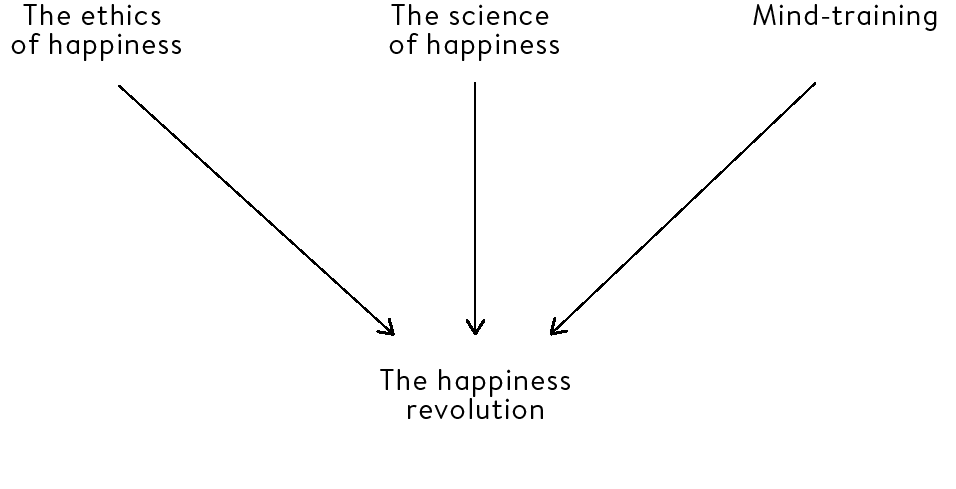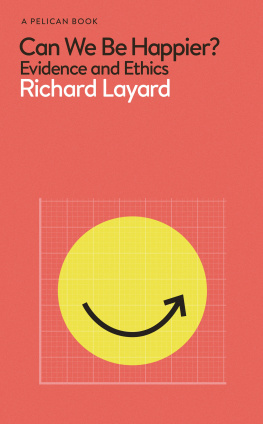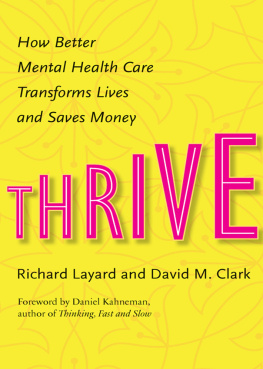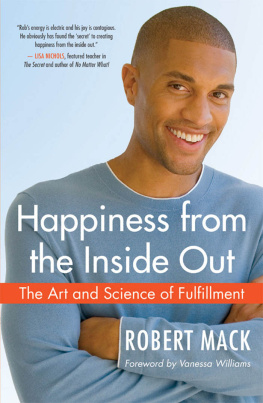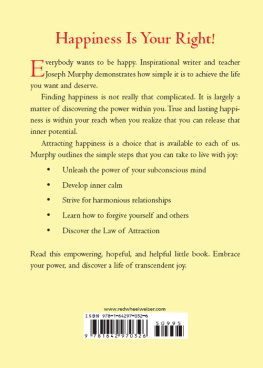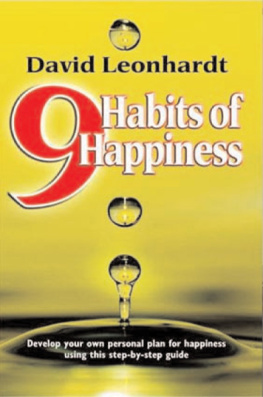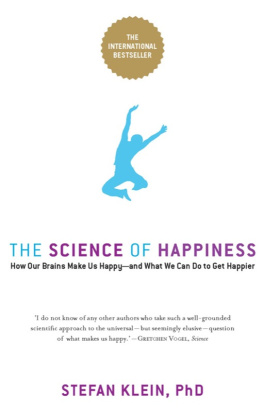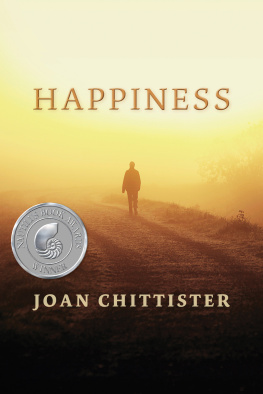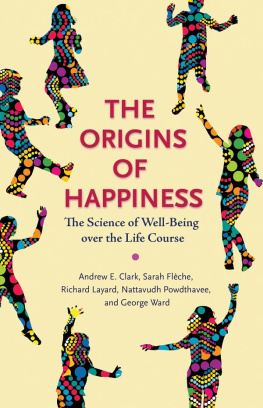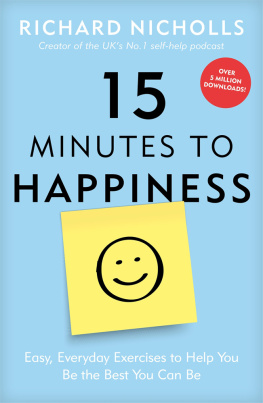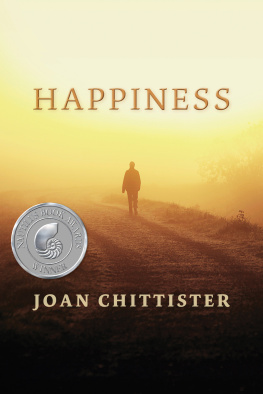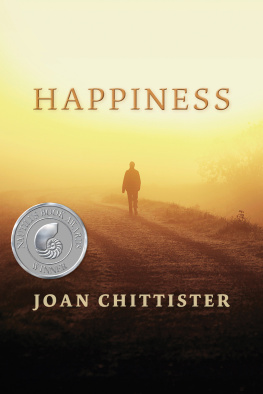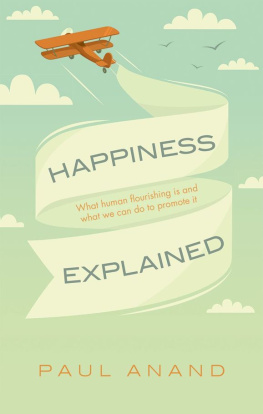RICHARD LAYARD
WITH GEORGE WARD
Can We Be Happier?
Evidence and Ethics
A PELICAN BOOK

PENGUIN BOOKS
UK | USA | Canada | Ireland | Australia
India | New Zealand | South Africa
Penguin Books is part of the Penguin Random House group of companies whose addresses can be found at global.penguinrandomhouse.com.

First published 2020
Text copyright Richard Layard and George Ward, 2020
The moral right of the author has been asserted
Book design by Matthew Young
Cover by Christophe Gowans
ISBN: 978-0-241-43001-9
This ebook is copyright material and must not be copied, reproduced, transferred, distributed, leased, licensed or publicly performed or used in any way except as specifically permitted in writing by the publishers, as allowed under the terms and conditions under which it was purchased or as strictly permitted by applicable copyright law. Any unauthorized distribution or use of this text may be a direct infringement of the authors and publishers rights and those responsible may be liable in law accordingly.
To the Dalai Lama
for the inspiration you give us
and to Molly
for our wonderful love
Introduction The Two Cultures
Whoever is happy will make others happy too How wonderful it is that nobody need wait a single moment before starting to improve the world.
Anne Frank, The Diary of a Young Girl
There is a wind of change in our society. People are talking about feelings. Even men are doing it. Quite recently Prince William and Prince Harry talked for the first time about their mothers death and how it affected their own mental health. There is a new undercurrent of concern with our own inner life and with how other people feel. Despite appearances, a new gentler culture is emerging.
By contrast, the older culture, which still dominates, is altogether harsher. It is more focused on externals. It encourages people to aim above all at personal success: good grades, a good job, a good income and a desirable partner. This culture of striving has brought many blessings, and life today is probably as good as it has ever been in human history. But that culture also involves a lot of stress, and people wonder why if we are now so much richer than previous generations we are not a lot happier?
The answer is surely the ultra-competitive nature of the dominant culture. The objective it offers is success compared with other people. But, if I succeed, someone else has to fail. So we have set ourselves up for a zero-sum game: however hard we all try to succeed, there can be no increase in overall happiness. An alternative, gentler culture offers a different aim, which can lead to a winwin outcome. It says that we should of course take care of ourselves, but we should get as much happiness as possible from contributing to the happiness of others.
Competition, it argues, is valuable in the right context and that context is competition between organizations. This has been a major engine of progress. But what we need between individuals is mostly cooperation, not competition. We want people who will act for the greater good at work, at home and in the community. This produces better results for everyone. But, above all, it makes life more enjoyable. For people long to relate well to each other as an end in itself and not just as a means to something else.
So the basic proposal in this book is that we should each of us, in all our choices, aim to produce the greatest happiness that we can and especially the least misery. This noble vision does not go against basic human nature. For all of us have two inherited traits one selfish and one altruistic. The selfish side believes that I am the centre of the universe and my needs come first. This trait was important for our survival as a race, and we should indeed take good care of ourselves and of our own inner equilibrium.
But the altruistic side enables us to feel what others feel and to strive for their good. This is vital for a happy society. It is a fallacy to think that reputation is a sufficient motivation for good behaviour. We need people with an inner desire to live good lives, even without reward. A happy society requires a lot of altruism, and so it needs a culture which supports our altruistic side.
This gentler culture has always been around, in some form or other. It is there in all the great religions. Yet for many people these religions have lost their ability to convince. As religious belief has declined, a void has been created and into that void has rushed egotism, by default. We have told our young people that their chief duty is to themselves to get on. What a terrible responsibility. No wonder that anxiety and depression are rising amongst the young. Instead, people need to get out of themselves to escape the misery of self-absorption. So there has to be a new, secular ethic, based on human need and not divine command.
The political crisis
A secular ethic is also vital if our democracies are to thrive. There is massive discontent with the worlds elite, and with the atomistic neo-liberalism which it often espouses. According to that philosophy, all will go well if individuals are free to negotiate their own way through life; selfishness is not a problem provided people can choose their own friends and trading partners. But this ignores one key fact that we would all be better off if the pool of possible friends and traders were nicer and more honest. For all of us the attitude of other people is crucial.
For this reason there is now a strong push back against extreme liberalism. People are calling for a society based on reciprocal obligation. In this view, we do not enter this world as independent, fully fledged adults, but as people highly dependent on support from our family, our government and the whole of our society. In return for this, we should ourselves feel bound to help others when we can. We want a free society, but one where people feel a duty to help.
But help in what way? There needs to be a clear content to our obligation to others. I think this is best expressed in terms of happiness: our obligation is to create the most happiness that we can in the society around us. This is the ideology we need for the twenty-first century. It is the vision of society that politicians should champion, and it is the principle that should guide their priorities in government. It is also, as we shall see, the principle that will get them re-elected. So the aim of politicians, as of private individuals, should be to create as much happiness in the world as possible and as little misery.
The happiness revolution
This new secular ethics is the basic principle for the happiness revolution for both individuals and governments. But to implement it we have to know what makes people happy both other people and ourselves. Two major developments now make this more possible. One is the new science of happiness which gives policy-makers new knowledge about how to improve happiness and reduce misery. And the other is the new psychology of mind-training which enables us all to get a better control over our own inner mental life. So, as shows, there are altogether three elements behind the amazing change that is now under way in our society.
